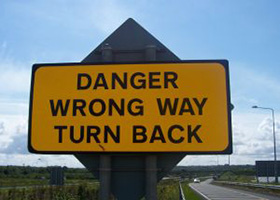
Reuters – The downgrade of much of Europe’s credit ratings demonstrates in perhaps the bluntest terms so far the collapse of any lingering — if lazy — assumptions that developed states are somehow “safer” than emerging counterparts. In the years to come, investors may make much harder-nosed assessments of how much to lend Western nations and how cheaply to do it, scrutinizing their economics, demographics and particularly politics much more sharply.
The long-term financial and geopolitical implications may be massive, making it harder for the world’s richest states to find the funds to bail out other countries or their own banks — or to meet the ever growing cost of an ageing population.
“The point here is that developed market countries are decreasingly creditworthy — and the higher pension burden… suggest this will only get worse in coming decades,” wrote Charles Robertson, chief economist of Renaissance Capital. “Emerging markets meanwhile (are) in a far healthier position and most emerging market countries seem on an upward direction over the long term.”
That growing belief itself, he says, accelerates the process. With ever more pension funds and other investors allocating more to emerging market debt and less to the developed world, it could move ever faster.
On Friday, ratings agency Standard and Poor’s cut its ratings of nine euro zone countries, stripping France and Austria of their coveted AAA status, downgrading Italy to the same BBB + level as Kazakhstan. Portugal followed Greece in being relegated to “junk” status — its BB rating the now same as that of the Philippines and Turkey — although it remains well above Athens’ dire CC, the worst of any rated state.
As with S&P’s August downgrade of the United States, the move had in many ways been long presaged by the markets.
Political risk
The two other major rating agencies, Fitch and Moody’s, have yet to follow S&P’s lead either on the United States or many of the major European countries. But a broader look across the past decade shows a general narrowing of the gap.
Turkey’s credit rating, Renaissance Capital analysis shows, has climbed 4 notches in the past decade whilst Spain has fallen four, Portugal nine and Greece 15 notches.
S&P’s BB rating might show Portugal and Turkey equal, but the market believes that stage has long passed. The cost of insuring Portugal’s sovereign debt in the credit default swaps market is more than three times higher than that of Turkey, 1,095 basis points against 322.
Whether Turkey can maintain that position, however, is heavily dependent on politics — particularly the ability of Prime Minister Recep Tayyip Erdogan not just to maintain control and stability but also to tackle their own growing deficit.
It’s the kind of assessment that could dominate sovereign debt markets for the next decade.
“Russia is up three notches on 10 years ago while Italy is down five notches,” writes Robertson. “Russia is still one notch below Italy. Over coming years, with low Russian debt, we’d assume Russia will rise above Italy.”
But Fitch clearly does not share that confidence. On Monday, it cut its outlook on Russia’s BBB rating from positive to stable — citing not just weak growth and growing dependency on higher oil prices but particularly rising political worries.
Prime Minister Vladimir Putin might have been seen as a guarantor of stability for more than a decade, but as he prepares to stand again in presidential elections this year worries grow that he may prove more of a liability.
It’s a similar picture in many other presumed rising emerging markets. In South Africa, India, Brazil, Argentina, Kenya, Ukraine, Kazakhstan and many others, politics will prove just as important as economics in shaping both their creditworthiness and broader fate in the years to come.
Finances in emerging economies are also deteriorating at the moment as a result of the European debt crises.
But the fact remains that until the recent moves, the only major emerging economy in Europe, the Middle East and Africa to see its rating fall over the past decade was Hungary — largely because of the actions of its relatively “unconventional” Fidesz government in recent years.
In West, wishful thinking is over
For Western economies, the main point is that the days when “political risk” was seen only to apply to emerging markets are a thing of the past.
Germany’s economy might be strong enough to preserve its AAA rating for the time being, but it is clear that whether or not the euro survives and its constituent nations remain creditworthy comes down to the bloc’s leadership.
Investors in euro zone assets might still study economic data or guidance, but as they focus on in-built problems ignored for years they know they are essentially making bets on political decisions as yet undertaken and at worst unachievable.
The only good news, some say, is that the recent downgrade means Europe and perhaps the wider West is finally confronting its true situation.
“The main effect… could be more honest dialogue about the real reasons for the crisis… and leave us better off as talk finally centers on reality rather than hope,” wrote Steen Jakobsen, chief economist at Saxo Bank.
“Effectively S&P did what it was supposed to do, it ignored the “PowerPoint presentation” from the EU and looked only at the accounts. The accounts speak clearly for themselves – no progress, no real plans.”
Whether the political systems that served western states in decades or longer of economic growth can deliver that is another question. As the euro zone struggles to act, in Washington DC the key danger may be that the system of constitutional “checks and balances” produces a deadlocked Congress and weakened executive that simply finds fiscal policy making impossible.

